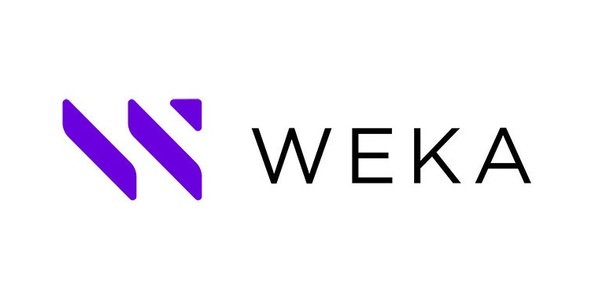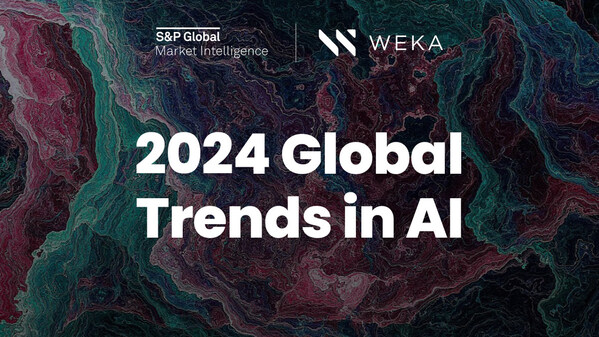 |
Additionally, the new report underscored that, although AI is now more widely implemented in global organizations, obstacles remain in deploying AI successfully at scale. Data architectures were a reoccurring theme in this year's report, defining the first wave of emerging AI leaders while many enterprises still struggle to scale. GPU availability was another commonly cited challenge, and regional disparities persist, suggesting global AI demand is outpacing access to AI accelerators and GPUs needed to power AI projects. Many organizations have successfully embraced AI infrastructure-as-a-service offerings from hyperscale cloud providers and an emergent market of new AI and GPU cloud markets to overcome this supply-demand gap and fuel their generative AI initiatives.
Key findings of the 2024 Trends In AI report include:
AI Applications Are Increasingly Pervasive In the Enterprise
- 33% of survey respondents have reached enterprise scale, with AI projects being widely implemented and driving significant business value, up from 28% last year.
- North America leads in enterprise AI adoption, with 48% of North American respondents indicating that AI is widely implemented, compared to APAC (26%) and EMEA (25%).
- Product improvement and operational effectiveness are key investment drivers, with organizations leveraging AI to improve product or service quality (42%), target increased revenue growth (39%), improve workforce productivity (40%) and IT efficiencies (41%), and accelerate their overall pace of innovation (39%).
- An astonishing 88% of organizations are actively investigating generative AI, far outstripping other AI applications such as prediction models (61%), classification (51%), expert systems (39%) and robotics (30%).
- Generative AI adoption is exploding: 24% of organizations say they already see generative AI as an integrated capability deployed across their organization. 37% have generative AI in production but not yet scaled. Just 11% are not investing in generative AI at all.
- On average, organizations have 10 AI projects in the pilot phase and 16 in limited deployment, but only six are deployed at scale.
- Data quality is the top challenge when moving AI projects into production.
- The most frequently cited technological inhibitors to AI/ML deployments are storage and data management (35%)-significantly greater than computing (26%), security (23%), and networking (15%). This is evidence that weak data foundations impede many organizations' AI projects.
- Four in 10 organizations suggest access to AI accelerators is a leading consideration in their infrastructure decision-making, and 30% cite GPU availability among their top three most serious challenges in moving AI models into production.
- Key channels for companies to access GPUs: respondents leverage hyperscale public clouds (46%) and - increasingly - GPU cloud service providers (32%) for model training.
- Nearly two-thirds (64%) of organizations say they are concerned about the impact of AI/machine learning (ML) projects on their energy use and carbon footprint; 25% indicate they are very concerned.
- 42% of organizations indicated that they have invested in energy-efficient IT hardware/systems to address the potential environmental impacts of their AI initiatives over the past 12 months. Of those, 56% believe this has had a "high" or "very high" impact.
To read the full 2024 Global Trends in AI study from S&P Global Market Intelligence, visit www.weka.io/trends-in-AI.
Research Methodology
The findings in S&P Global Market Intelligence's 2024 Global Trends in AI report draw from a survey fielded in Q2 2024 of 1,519 AI/ML decision makers/influencers in enterprises, research organizations, and AI providers building AI technologies, products, and solutions. The study prioritized respondents with AI/ML projects in pilots and production environments across the following industries: aerospace and defense, automotive, energy/oil and gas, finance, government, healthcare, higher education, IT and services, life sciences, manufacturing, media/entertainment, telecommunications, transportation and logistics, and utilities. The report also draws on contextual knowledge of additional research conducted by S&P Global.
About WEKA
WEKA is architecting a new approach to the enterprise data stack built for the AI era. The WEKA® Data Platform sets the standard for AI infrastructure with a cloud and AI-native architecture that can be deployed anywhere, providing seamless data portability across on-premises, cloud, and edge environments. It transforms legacy data silos into dynamic data pipelines that accelerate GPUs, AI model training and inference, and other performance-intensive workloads, enabling them to work more efficiently, consume less energy, and reduce associated carbon emissions. WEKA helps the world's most innovative enterprises and research organizations overcome complex data challenges to reach discoveries, insights, and outcomes faster and more sustainably - including 12 of the Fortune 50. Visit www.weka.io to learn more, or connect with WEKA on LinkedIn, X, and Facebook.
WEKA and the WEKA logo are registered trademarks of WekaIO, Inc. Other trade names used herein may be trademarks of their respective owners.
1 451 Research, part of S&P Global Market Intelligence, Discovery Report "Global Trends in AI," August 2024


